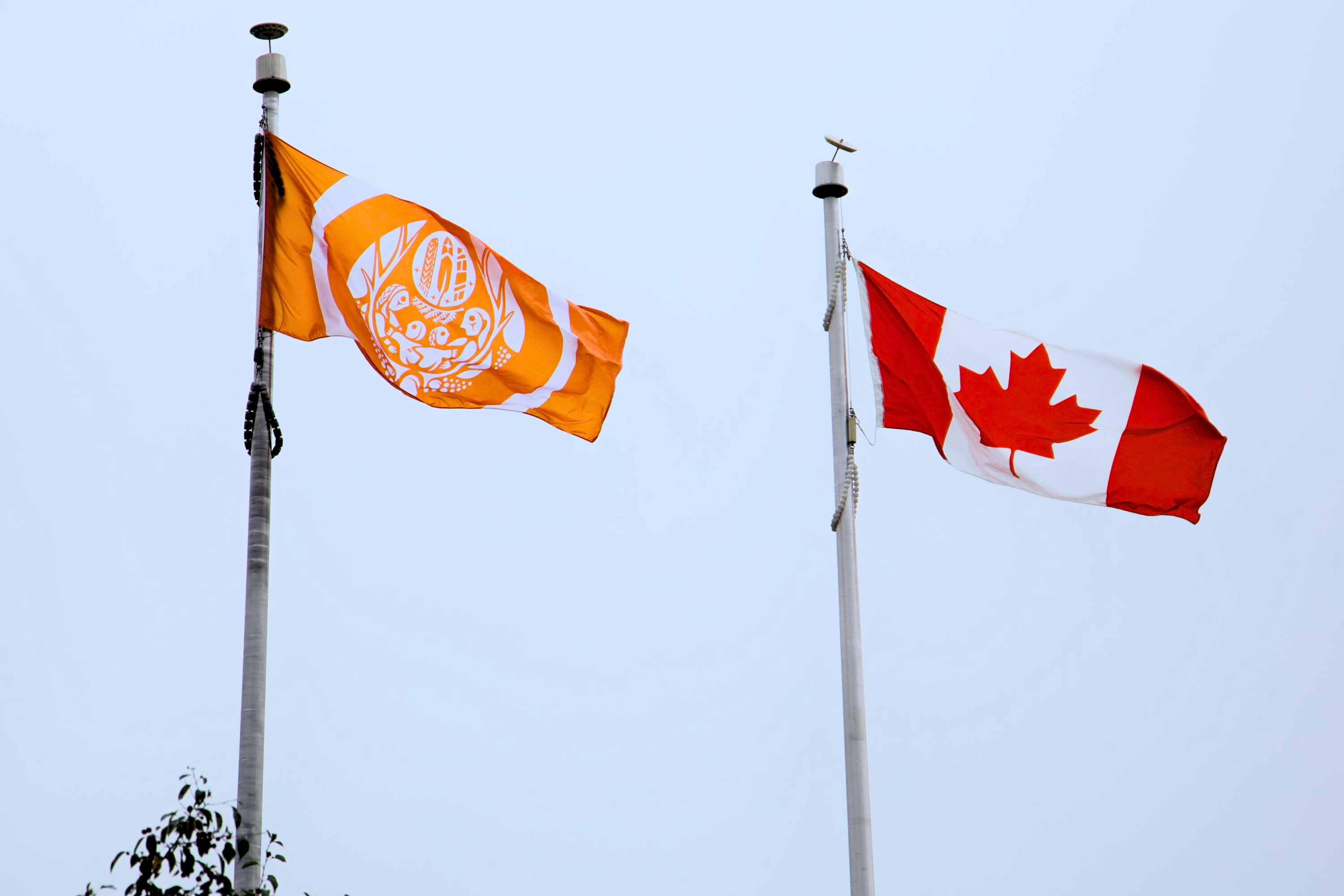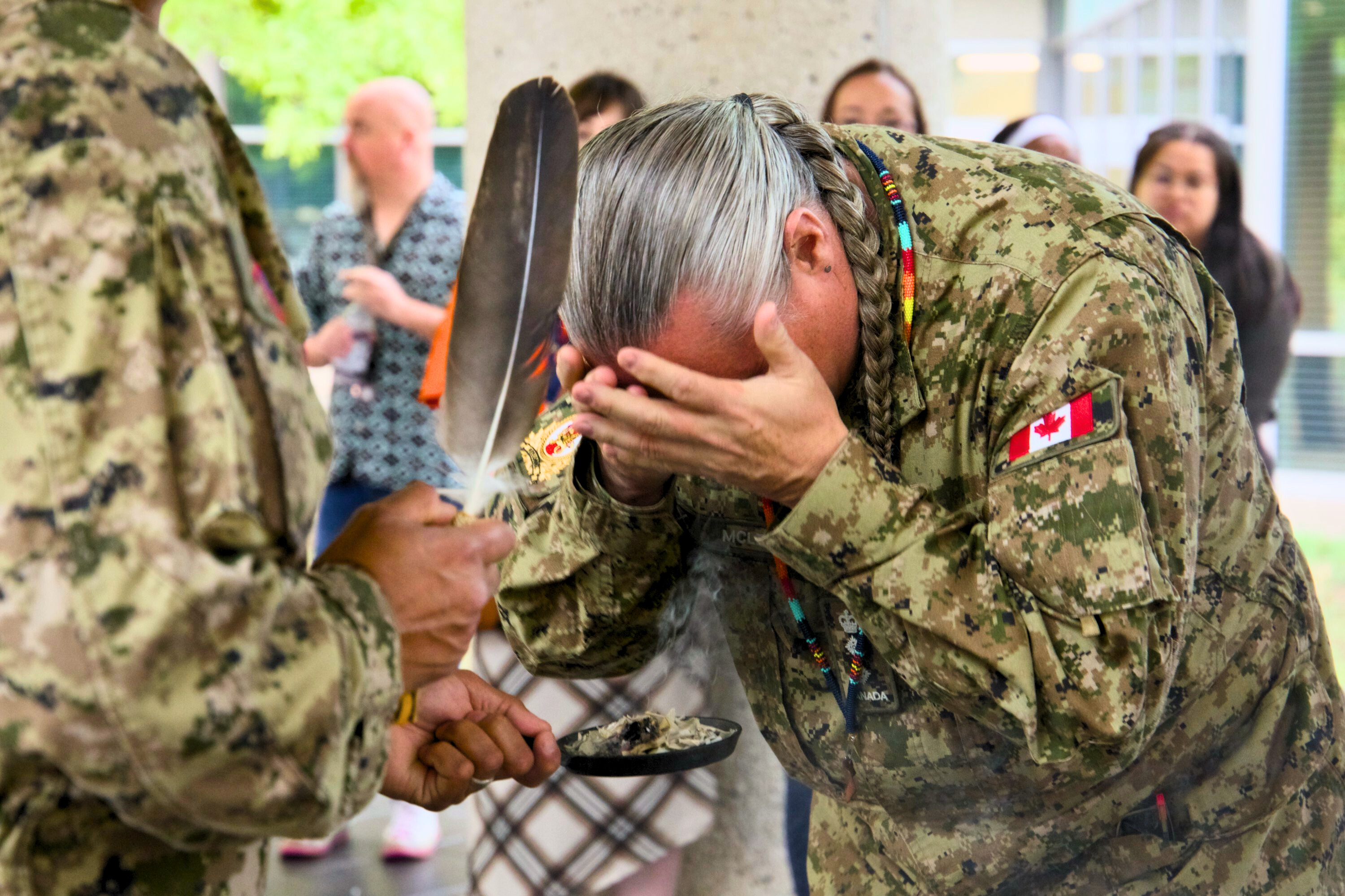Continuing the discussion: Q&A on reconciliation with the Defence Co-Champions for Indigenous Peoples
September 29, 2025 – Defence Stories
Estimated read time – 2:00

Caption
The Survivors’ Flag was raised alongside the Canadian Flag during a ceremony held as part of the National Day for Truth and Reconciliation commemorations at NDHQ Carling.
Each year, the end of September is marked by events that commemorate the National Day for Truth and Reconciliation (NDTR). This day honours the Survivors of the Residential School system, the children who never returned home, their families, and their communities. More broadly, it invites Canadians to reflect on this system’s impact and learn how to be agents of change.
In that spirit, the Defence Co-Champions for Indigenous Peoples, Lieutenant-General Michael Wright, Commander Canadian Army (CCA) and Peter Hammerschmidt, Assistant Deputy Minister (Infrastructure and Environment) [ADM(IE)], shared their thoughts on reconciliation within the Defence Team.
Q: What does NDTR mean to you as Defence Co-Champions?
CCA & ADM(IE):
NDTR is a day rooted in compassion, reflection, and a commitment to doing better. It honours Survivors and the children who never returned home, while recognizing the pain endured by Indigenous Peoples. It’s also a time for education and hope; hope that we can walk together toward a more inclusive Defence Team. Reconciliation is not a one-day occurrence, but an ongoing responsibility that must be woven into our daily actions.
Q: Can you share a moment that deepened your understanding of the impact of Residential Schools?
ADM(IE):
Listening to the testimonies of Survivors and engaging with Indigenous communities has deepened my understanding of the Residential School system’s devastating impact. The stories of loss, resilience, and intergenerational trauma are heartbreaking, yet they serve as powerful reminders of why truth and education are essential.

Caption
A member of the Canadian Armed Forces takes part in a smudging ceremony held as part of the National Day for Truth and Reconciliation commemorations at NDHQ Carling.
Q: What progress have you seen within the Defence Team over the past decade?
CCA:
There’s been a meaningful shift in awareness and openness. Indigenous cultural elements have been integrated into instruction, ceremonies, and events. We have expanded programs and launched initiatives dedicated to Indigenous communities. The momentum is real, and our commitment is strong.
Q: How can NDTR foster healing and change?
ADM(IE):
It is an opportunity to pause, reflect, and envision the path forward. NDTR reminds us that reconciliation is a continuous effort and must be part of our everyday actions.
Q: Looking ahead, what messages and hopes do you have for future generations of the Defence Team?
CCA & ADM(IE):
Our hope is that the NDTR becomes a lasting tradition that inspires reflection, learning, and meaningful action across the Defence Team. We want future generations to see reconciliation not as an obligation, but as a part of who we are. Every member has a role to play. If we continue to walk this path together, we can build a Defence culture rooted in inclusion, understanding, and trust; one that recognizes the past while shaping a better future for all.